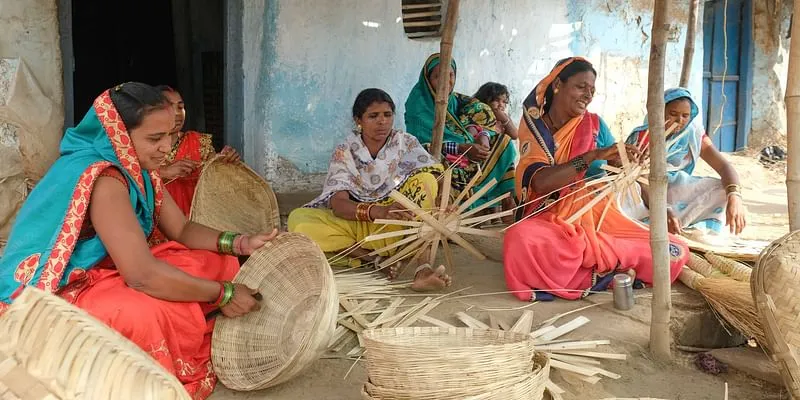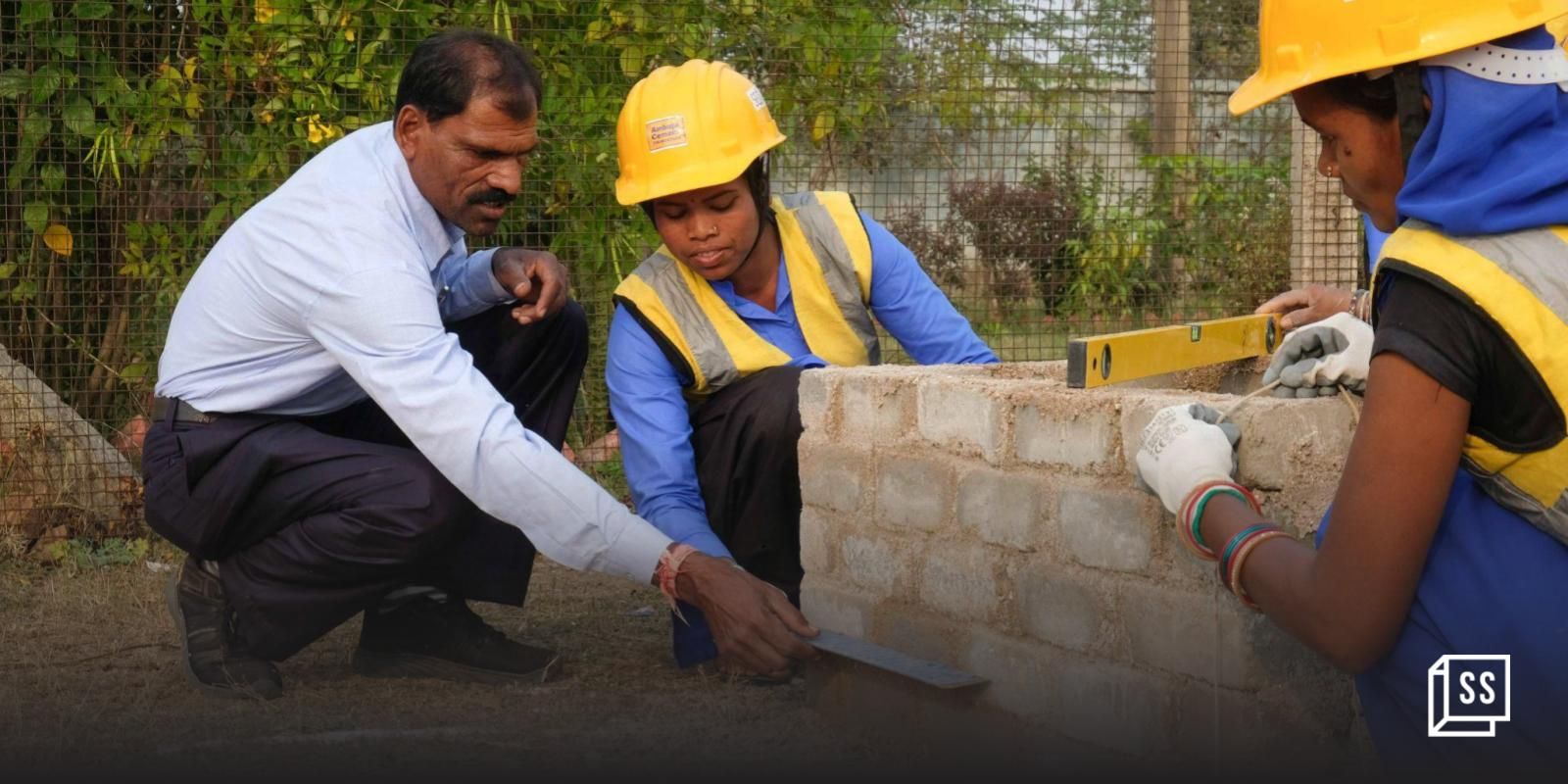Skilling is key to curbing unemployment, migration in rural India
To tackle migration in India, a holistic approach to skilling is required, with a special focus on women and youth.
The onset of COVID-19 brought the issue of ‘migrant workers’ into sharp focus, highlighting the need for a new paradigm of livelihood opportunities in our rural areas–where migrant workers invariably hail from. A lack of jobs, unprofitable agriculture and the poverty that ensues, is at the root of rural-urban migration in India.
Often engaging in casual employment in overcrowded cities without formal guarantees, and largely deprived of any social protections to ensure basic standards of living, urban migration is merely a process whereby rural poverty is transferred to an urban environment, resulting in a concentration of misery.
So how then, as a nation, do we tackle this complex problem? Programmes and schemes addressing the problem at the ‘urban’ end of the spectrum are certainly needed, but fail to get to the root of the issue to prevent migration from villages in the first place.
If we can focus our efforts on catalysing rural development and livelihoods, we can make rural India a prosperous place for people to live – instead of turning towards migration.
Unfortunately, the rural economy is over-dependent on agriculture which employs over 60 percent of the total populace, yet contributes only 20 percent to the national GDP (gross domestic product).
This over-dependence, along with the un-productivity of agriculture and the lack of non-farm employment skills, is fuelling rural poverty and its resultant migration.
Skilling rural India provides the key to addressing this problem and should therefore be a top developmental priority for the country, focussing on skills relevant to the rural economy in both farming and non-farming sectors.
Skilling farmers
Indian agriculture is at crossroads and the need of the hour is not only to make farming a profitable venture to attract and retain those who want to quit farming, but also enhance agricultural productivity and incomes to solve the issue of unemployment which is often ‘disguised’ in the agricultural workforce.
For this, we need to develop practical skills among our farmers in various aspects of farming so that the traditional, time and cost-consuming methods are replaced by scientific, modern, economic and efficient methods.
Skill training is also pivotal to supporting farmers in diversifying and de-risking their income streams–helping them add high-profit ventures to their existing crops, including horticulture, aquaculture, poultry, and goatery (aka goat farming).
Training can also support farmers in capitalising on various new opportunities like warehousing and logistics supply that are emerging in the agriculture and allied sectors, due to the increasing commercialisation of farming.
While encouraging farmers to use latest technologies and machines, opportunities also arise on servicing such systems. Skill training can therefore provide an ‘edge’ to those who are seeking job opportunities in these sectors.
Skilling women
Interestingly, women outnumber men in making the rural-to-urban shift. Accordingly to the 2011 census, of the 78 million rural migrants, 55 percent were females and they outnumbered males in 554 of the 640 districts due to marriage or rural to rural migration.

History has proven rural women as pivotal torchbearers for social, economic and environment transformation. In India, agriculture employs about 80 percent of rural women, which is why empowering them with knowledge and skills can bring about a paradigm shift towards economic growth in rural areas.
Additionally, providing capacity-building and skill training to women, particularly via the SHG (self-help group) movement, can help support a variety of women-led micro-enterprises and income generation opportunities, which can act as the tipping point for a family out of poverty-reducing their need to migrate.
Skilling youth
A big economic opportunity for India, lies in creating competent and trained manpower to capitalise on its demographic dividend. Of particular concern has been the skilling of the rural youth, who constitute nearly 68 percent of India’s total population.
Sadly, the penetration of vocational training in rural India is abysmally low —93.7 percent (2017–18) of youth have not received any vocational training. A dearth of quality trainers, inadequacies in training programmes and focus more on academics rather than vocational training remain hurdles to skill development.
Most training institutes are located in the nearest small towns, inaccessible to most, especially women, due to the lack of public transport facilities.
In the absence of skills most literate rural youth end up working as unskilled migrant workers in the nearest towns and cities–shunning agriculture which is deemed largely unprofitable and overly laborious.
The pandemic has brought focus on opportunities for youth like turning frontline workers —paramedics, nursing, ASHA (Accredited Social Health Activist) workers for the healthcare sector, starting businesses for sales, good and home-based services, or even ecommerce.
New opportunities are emerging in information technology linked agri-extension services, food processing, agri-based ecommerce, and solar technicians, amongst others. In the coming years there is expected to be a spurt in demand for these professions, one that skill training institutes need to respond to, by offering a greater number of courses for such skills.
A key part of such a push would be to create awareness and aspirations for these vocations, and their potential to offer fulfilling careers.
To tackle migration in India, a holistic approach to skilling is required— scaling-up support to small land-holder family farmers and creating alternative and sustainable livelihood options, with a special focus on women and youth. This is fundamental to addressing the root causes of rural migration.
Rural India, abound with natural resources and human capital, has all the ingredients to become a powerhouse of national development. But unless we invest in this human capital and empower them with knowledge and skills, we will not only squander a valuable resource.
Edited by Affirunisa Kankudti
(Disclaimer: The views and opinions expressed in this article are those of the author and do not necessarily reflect the views of YourStory.)












